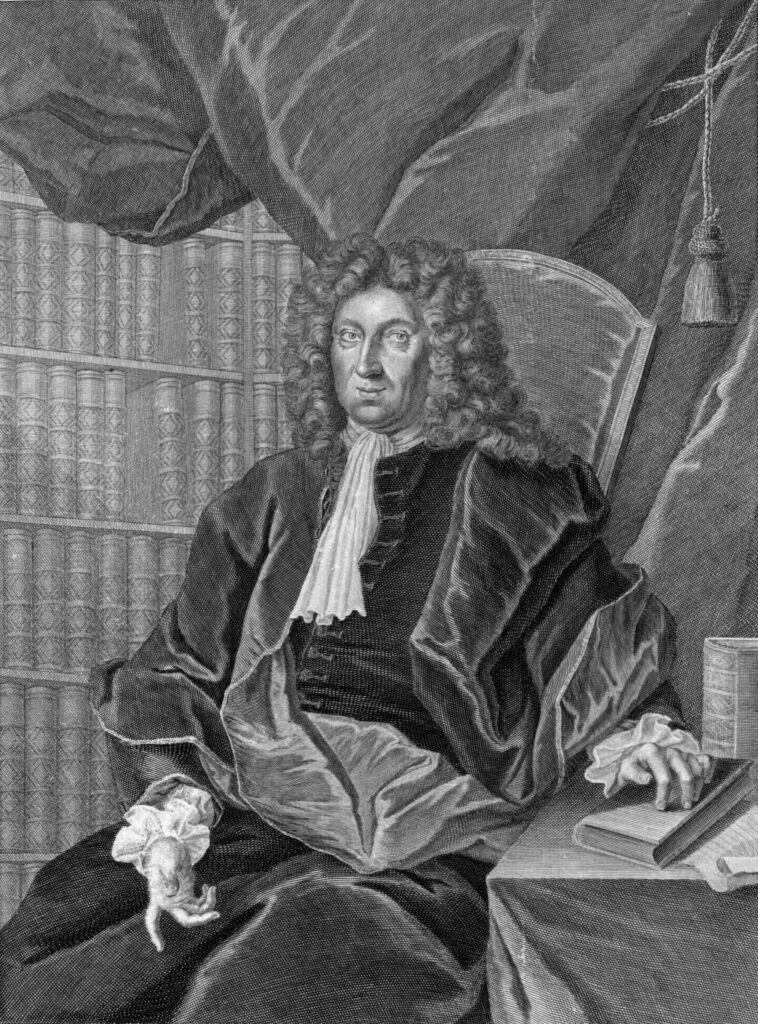In times of Bach, the motet had lost its role as a focal point for religious services, replaced by the cantata. In spite of this, Bach composed a few motets for special occasions, using the somewhat archaic form but, true to style, imbibing it with his unparalleled craft.
“Der Geist hilft unser Schwachheit auf” (BWV 226) was intended for the funeral service of Johann Heinrich Ernesti, who passed away on October 16, 1729. Ernesti was a preacher and writer, professor of Poetry at the Leipzig University, and Rector of the Thomasschule for 45 years. He was in office at the school when Bach took the position of Thomaskantor in 1723, and they were apparently good friends.
Like “Singet…”, BWV 225, which we heard a few months ago, BWV 226 is also for double choir (eight-part setting), however of a more modest scale, and about half as long. The funeral service was performed at the University Church (Paulinerkirche), and we have records that Bach used strings and possibly oboes to double the voices.
The text is in two parts: a quote from Romans (chapter 8, verses 26-27) and the third stanza of a hymn by Martin Luther from 1524. Both fragments are centered on the idea of the Holy Ghost supporting and consoling the afflicted. The first section, on the Romans text, starts in triple meter but changes tempo twice, first to 4/4 and then, after a cadence, to “cut time”, for an old-fashioned fugal section in which the two choirs merge into four-part writing. The concluding chorale is also in four voices.
